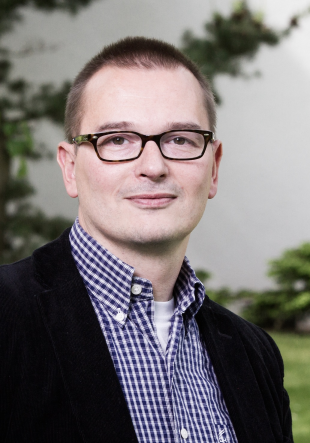VR-intense / Virtual Reality innovation tool for encouraging new students in environments for higher education lectures and seminars
Overview
The ERASMUS+ project “VR-intense - Virtual Reality innovation tool for encouraging new students in environments for higher education lectures and seminars” focuses on the use of VR in higher education. VR-intense is therefore a project in the field of higher education within the ERASMUS+ program, coordinated by the Chair of Business Education II.
Duration: 36 months
Project start: 01/09/2024
Project end: 31/08/2027
In the VR-intensive project, the project partners will establish a supportive VR setting with the following objectives:
(a) to introduce the higher education institutions and study programs in Europe to students,
(b) as well as to improve social and communication skills and study skills.
(c) Furthermore, comprehensive learning experiences with a view to European citizenship are to be offered for seminars and lectures.
Partners:
- University of Paderborn - UPB, Chair of Business Education II, Germany
(Coordinator, Concept Partner, Didactics Partner, University Partner)
- Ingenious Knowledge GmbH, Germany
(Technical Partner)
- Universidad a distancia de Madrid SA. Spain
(University Partner)
- Otto-Friedrich-Universität Bamberg, Germany
(University Partner)
- Future in Perspective Ltd, Ireland
(Education and Dissemination Partner)
- Universitatea Nationala de Stiinta si Tehnologie Politehnica, Romania
(University Partner)
Objective
The aim of the project is to create a VR concept for HED, to program, implement and test a VR environment for VR glasses. Furthermore, the project aims to introduce universities, to design, offer and evaluate a blended learning VR training concept on social and communicative topics. The focus is on skills and improving students' learning ability, as well as designing examples of how VR can be used in HED, particularly with regard to Europe-wide collaborative virtual spaces for interaction and discussion. This means that the main goal is to create new VR-integrating teaching and learning environments for HED (higher education and training).
In view of the constant changes in technology and the use of VR devices, the partners are focusing on designing an innovative learning environment that combines the aspects of blended learning and digital media and embeds these in the partner organizations to create a transferable VR-in-HED strategy. Therefore, the core idea of the consortium is to work together internationally to jointly develop, apply and evaluate VR tools.
English is used as the project language in the VR-intense project.
Objectives:
VR-intense builds a supportive VR attitude to
(a) introduce students to higher education institutions and study programs in Europe,
(b) as well as to improve social and communication skills and study skills,
(c) offer comprehensive learning experiences with regard to European citizenship for seminars and lectures.
(d) and to create two VR tools – one for excursions and one for collaboration
The main objective is to create new VR-integrating teaching and learning environments for higher education.
In terms of HED didactics and pedagogy, the use of VR is an innovative teaching method. Furthermore, VR can inspire educators to explore new and innovative teaching methods. It provides a platform for designing interactive and dynamic learning experiences that can spark learners' motivation and curiosity.
In the VR-intensive project, the project partners are building on a supportive VR approach to comprehensively promote learning experiences in terms of European citizenship. This is geared towards embedding in seminars and lectures.
The aim of the project is therefore to create a VR concept for HED, to program, implement and test a VR environment for VR glasses, to present a blended learning VR training to universities, to design, offer and evaluate a blended learning VR training.
The aim is to develop a concept for promoting social and communication skills and improving study skills. The project also focuses on presenting examples of the use of VR in HED, particularly with regard to Europe-wide collaborative virtual spaces for interaction and discussion. This means that the main goal is to create new VR-integrating teaching and learning environments for HED. In view of the constant changes in technology and the use of VR devices, the partners are focusing on the design of an innovative learning environment that combines the aspects of blended learning and digital media and can be integrated into the partner organization.
This will develop a transferable VR-in-HED strategy. The core idea of the consortium is international collaboration. Another goal is to support students with disabilities and handicaps through the use of VR. Therefore, we take this into account in implementation activities and in evaluation activities. This is documented in a report on the possibilities of helping the disabled and disadvantaged.
The VR-intense project aims to improve the participation of learners in English language learning through VR and digital learning. This is done via a free, open-access e-learning platform. In addition, teachers who undergo project training are encouraged to share their experiences and knowledge with their colleagues in the workplace.
Key Facts
- Grant Number:
- Project type:
- Sonstiger Zweck
- Project duration:
- 09/2024 - 08/2027
- Funded by:
- Europäische Union (EU)
More Information
Results
Work Packages:
Four work packages (WP) are being implemented in the VR-intense project:
WP1 Project Management
WP2 VR-intense solutions - VR tools for field trips and for collaboration across Europe
WP3 VR-intense course - Learning modules on the use of VR in higher Education lectures and students
WP4 VR-intense implemtation, evaluation and handbook design

